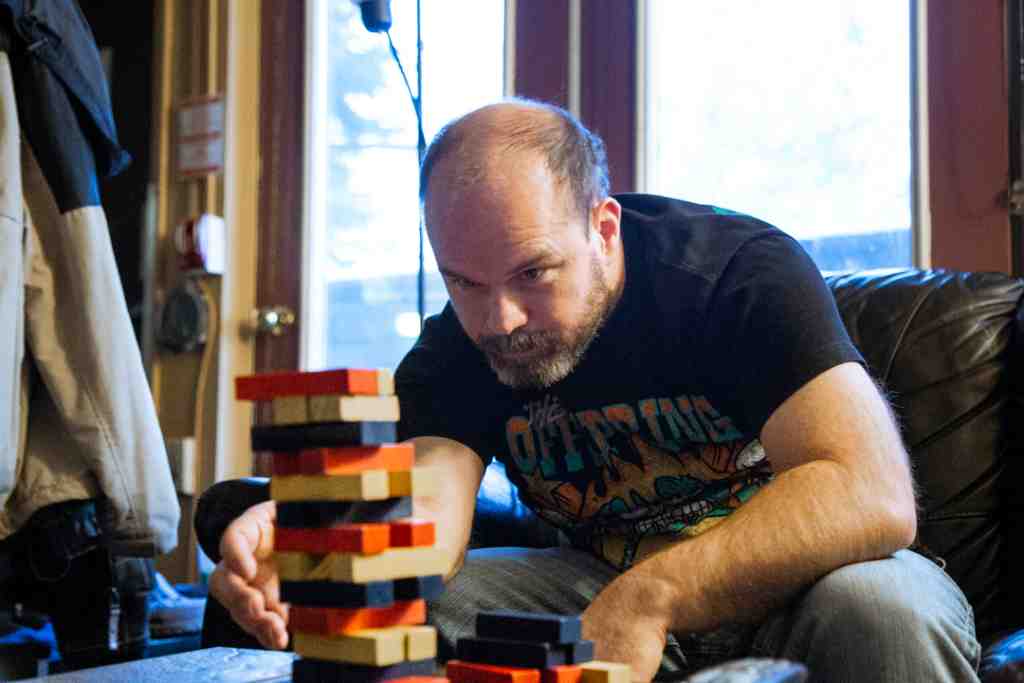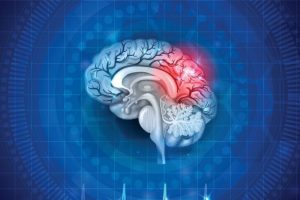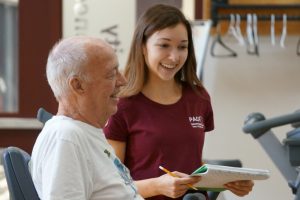Sexual Health and Intimacy
Sexuality is an integral part of us all, regardless of age, gender, health and physical ability. Sexuality encompasses all the feelings, attitudes and behaviours that contribute to our sense of who we are.
Sexual health involves areas of sexual knowledge, sexual interest, sexual response, sexual activity, sexual behaviour/relationships, fertility/contraception and sexual self-view.
After a brain injury, you may experience changes to your sexuality. Everyone's situation is unique and depends on the severity of your injury, if you have other medical conditions, whether you have a partner or not and what your relationship was like prior to the injury. Partners may notice a change in their own feelings as well.
Here are a few examples of some common questions raised by survivors and/or their partners and families:
Why has my desire for sexual intimacy changed?
A decrease in the level of sexual interest is a common concern. The reasons for this are many and may include:
Physical changes such as:
- Difficulty getting an erection, vaginal dryness
- Loss of body movement
- Loss of sensation
- Spasticity
- Pain
- Fatigue
- Difficulty communicating
Emotional / behavioural changes - that may affect the expression of sexuality such as:
- Fear and anxiety
- Depression
- Changes in body image and self esteem
- Behavioural disinhibition
- Changes in role
- Social isolation
Medical conditions such as:
- Thyroid problems, vascular disease, diabetes, hormonal changes
- Potential side effects of some medications
Some of these changes may be temporary and improve over time. There may be some treatment options for you. Discuss your concerns with your doctor or sexual health clinician.
Share your concerns and feelings with your partner. Talking with each other may help clarify misunderstandings as well as create chances to work on your intimate relationship.
My body does not move in the same way, what can I do?
You may have difficulty moving, balancing and positioning your body, legs, arms and hands for sexual activity. Pain and discomfort may also be a concern.
- Be creative and stay open to new ideas
- Stretching and range of motion exercises may help decrease spasticity
- Taking anti-spasticity medication prior to sexual activity may help. Talk to your doctor about this.
- A physiotherapist, occupational therapist or sexual health clinician can explore different positions and techniques with you and your partner
- Try new positions, and explore using pillows and adaptive devices.
The Sexual Device Manual gives ideas for positions and devices.
Do I still need to worry about birth control and sexually transmitted disease?
The short answer is "yes"
- Try to avoid an unplanned/unwanted pregnancy
- You may choose to change your method of contraception. Think about your ability to remember, hand function and physical ability. Discuss this with your doctor.
- Everyone is vulnerable to STD's and HIV infection. Always use condoms with casual partners and partners when you don't know their sexual history
- For information on contraception and safer sex practices contact: see the Canadian Federation for Sexual Health at http://www.cfsh.ca/
I find it much harder to meet new people, what can I do?
- Pay attention to your appearance (clothing, hair, shaving) and personal hygiene
- Join support groups, find ways to help others, volunteer, join a hobby or interest group or take a course. Attend a service club or church. The bottom line is, you need to get out of the house to meet people.
- Get ideas from family and friends
I notice that I sometimes say things that upset people
- We all have thoughts in our head that we don't share with people around us. For example, if we see an attractive person walking down the street we don't say, "I like your butt". For some persons with a brain injury keeping these thoughts private is difficult.
- Getting feedback from others and being aware that you have trouble with this is the first step
- You will have to work hard to watch what you say. A psychologist or occupational therapist can help you find ways to do this.
I find it difficult to feel sexual towards my partner when I am more of a parent to him/her during the day
- Your partner may take on more of a care giving role after your brain injury. It can be time consuming, physically tiring and emotionally draining.
- Your partner may feel differently towards you emotionally
- Having the help of a paid caregiver helps your partner focus on your relationship
- Find simple ways to work on your relationship: Go on a weekly date, set aside an hour each day to focus on intimacy
- If you need more help, consider counselling. A good therapist can help clarify concerns and increase communication between you and your partner
Our daughter sustained a brain injury two years ago and is now living in a group home. She constantly makes sexual comments to men she meets. This is so unlike her.
- In some cases after a brain injury, the person's understanding of appropriate sexual behaviour can be affected. This can be very confusing and upsetting for the family.
- Giving constructive feedback to the person may help
- If the behaviour continues, you can try education, counselling, setting boundaries and medical help.
Where can I find more information?
In your journey to sexual rediscovery it can be helpful to understand that life behaviours of a sexually healthy person include:
- Appreciating one's own body
- Affirming one's own sexual orientation and respecting others
- Making informed choices
- Identifying and living according to one's values
- Taking responsibility for one's own behaviours
- Enjoying and expressing one's sexuality throughout life
(Adapted from the Sexuality Information and Education Council of US)
Other resources:
- Patient/Family Information on Sexuality from StrokEngine addresses common fears and concerns regarding sex and intimacy, when to re-start sexual activity, special physical challenges and sexual positions, among other topics
- Listen to the podcast "Sexuality after Traumatic Brain Injury" from Northeast Center for Special Care
- Heart and Stroke Foundation has information about relationships and sexual intimacy
The following information sheets are provided by Vancouver Coastal Health:
Becoming More Interested in Sex
Body Image and Self-Esteem
Sexuality and Disability
Caregiving and Sex - a Complicated Mix
General Suggestions for Enjoying your Sexuality
Getting More Help with Sexual Concerns
Relationships and Disability
Sex and Disability - Managing Physical Changes
Sexuality and Disability
Sexuality and Intimacy after a Brain Injury
STD's and Disability
Talking about Sex with a Partner
Articles For Families
Alcohol & Substance Abuse
Information about the effects of alcohol and drug use on the brain and getting help and support.
Concussion
Describes common concussion symptoms, problems and how to get better.
Keep your Brain Healthy
It's all about preventing an injury, living a healthy life and finding ways to take care of your body, mind and spirit.
Sexual Health & Intimacy
Common questions from survivors and/or partners and families regarding sexual health & intimacy.
Strategies to Assist Learning
This article provides strategies, ideas, and tips that may help you continue to learn.
When Can I Drive Again
Describes what has to be considered to determine readiness to drive after a brain injury.
GETTING BACK TO WORK
Describes what has to be considered to determine readiness to return to work after a brain injury.
Brochure a l'intention des personnes atteinte
Les préoccupations de la Société de l'assurance automobile du Québec en matière de réadaptation existent depuis sa création en 1978. Consciente des difficultés que provoquent certains traumatismes graves sur le plan humain, la Société publie la présente brochure afin de venir en aide aux personnes qui sont aux prises avec les problèmes qu'entraîne un traumatisme cranio-cérébral.





